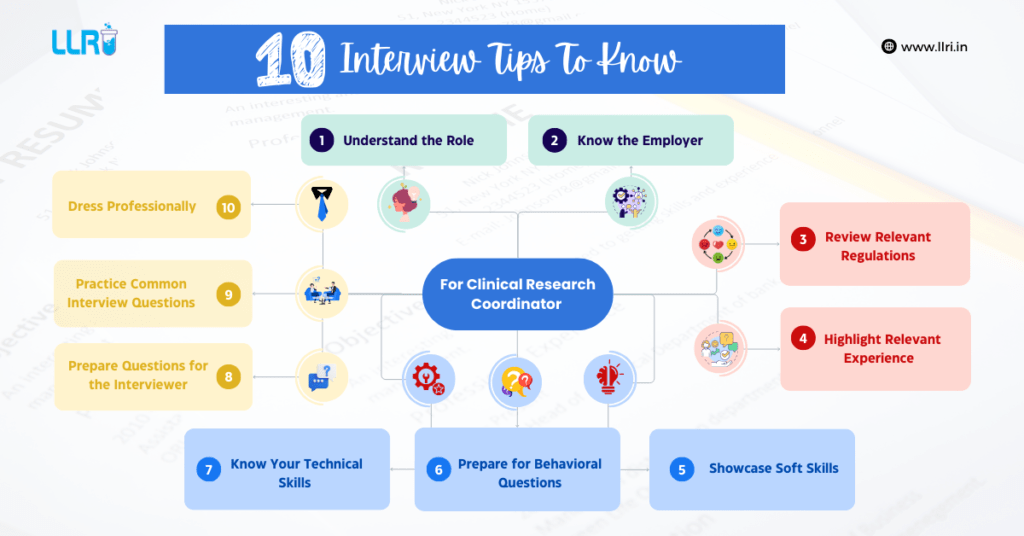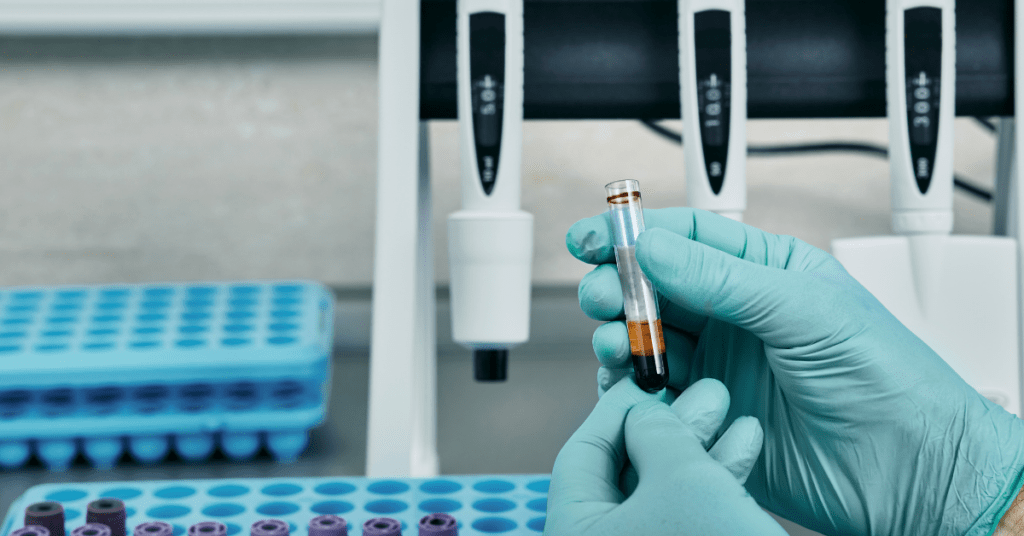Clinical Research Associate Interview Questions: If you’re gearing up for a role as a Clinical Research Associate (CRA), understanding the types of interview questions you might face is the most important thing, you agree, right?
So, let us help you with it! Learning Labb Research Institute has got your back when it comes to this – read on.
This article contains the following:
- Clinical Research Associate Interview Questions
- Common Clinical Research Associate Interview Questions
- Behavioral Interview Questions For Clinical Research Associates
- Technical Interview Questions For Clinical Research Associates
Clinical Research Associate Interview Questions: Overview
The clinical research field is versatile and highly specialized, requiring a blend of technical knowledge, practical skills, and behavioral competencies. A Clinical Research Associate (CRA) plays a vital role in the medical research field. Their primary responsibility is to ensure that clinical trials are conducted ethically, safely, and efficiently.
If you’re preparing for a CRA interview, understanding the typical questions and what interviewers are looking for can give you that edge!
Watch Full Video On: Acing Your Clinical Research Associate Interview: Top Questions and Answers

Common Clinical Research Associate Interview Questions
Here are some common clinical research associate interview questions you may come across:
- Tell me about yourself.
- What do you consider your strengths and weaknesses?
- How confident are you in your abilities as a researcher, and why?
- What specific skills do you bring that contribute to a successful work environment?
- How might past colleagues describe you to someone unfamiliar with you?
- Where do you see yourself professionally in 10 years?
- How do you typically respond to constructive feedback?
- What sparked your interest in clinical research?
- What do you find most rewarding about working in this field?
- How many years have you worked in clinical research?
- How many clinical trials have you participated in as a CRA?
- What research certifications do you currently hold?
- What’s the most important lesson you’ve learned as a CRA?
- How do you motivate your colleagues to exceed their targets?
- What inspired you to pursue a career in research?
- Have you encountered difficult coworkers before, and how did you handle it?
- Which data entry programs are you proficient in?
- Describe a time you adhered to a work policy you disagreed with, and why.
- Have you traveled regularly for work before? If so, what was your experience like?
- Why are you seeking a new CRA position?
- How do you stay organized in your work?
- What’s your experience working in medical environments?
- What attracted you to this company?
- How would you explain a CRA job to someone unfamiliar with the field?
- Have you encountered an adverse drug reaction on a research site? If not, how would you handle it?
- Describe a professional failure and what you learned from it.
- How would you manage an uncooperative test subject?
- What’s your typical daily routine as a CRA?
- What challenges do you anticipate in this position?
- How do you define personal success?
- What’s the greatest benefit of participating in a clinical trial?
- How critical is attention to detail in your role?
- What’s your proudest accomplishment in your CRA career?
- What advice would you give to someone starting out in a CRA career?
- How do you handle data management in clinical trials?
- How do you address protocol deviations or non-compliance at trial sites?
- How do you ensure adherence to regulatory guidelines and ethical standards in research?
- How do you manage challenges or conflicts during trials?
- Can you discuss an experience with a serious adverse event during a trial and how you managed it?
- What do you consider the greatest advantage of participating in clinical trials?

Behavioral Interview Questions for Clinical Research Associates
Behavioral interview questions for clinical research associates focus on your past experiences and how they shape your approach to work. Enrolling in a clinical research course can help you out here! Here are some examples:
1. Give an example of a time you had to resolve a conflict within a research team.
Show your conflict resolution skills and ability to maintain a positive working environment.
2. Describe a situation where you had to adhere to strict guidelines under pressure.
This highlights your ability to stay compliant and calm under pressure.
3. Tell me about a time you went above and beyond for a project.
Demonstrates your dedication and willingness to exceed expectations.
4. How do you handle feedback and criticism?
Your ability to accept and learn from feedback is crucial in a dynamic field like clinical research.
Technical Interview Questions for Clinical Research Associates
Technical interview questions for clinical research associates will assess your specific knowledge and skills related to the job. Here are some key examples:
1. What is Good Clinical Practice (GCP) and why is it important?
Understanding GCP is fundamental for any CRA, as it ensures the safety and ethical treatment of trial participants.
2. Explain the phases of clinical trials.
Your explanation should cover Phase I (safety and dosage), Phase II (efficacy and side effects), Phase III (efficacy and monitoring adverse reactions), and Phase IV (post-marketing surveillance).
3. How do you perform a site selection visit?
This question checks your ability to evaluate and select appropriate sites for conducting trials.
4. What is the role of an Institutional Review Board (IRB)?
Your response should emphasize the IRB’s role in protecting the rights and welfare of human research subjects.
5. Describe the process of monitoring a clinical trial.
Detail the steps involved, including site visits, data verification, and ensuring compliance with the trial protocol.

On A Final Note…
Facing any interview can be quite daunting – no lies detected there, right? Preparing for a clinical research associate interview means you need to be prepared for a mix of understanding common inquiries, reflecting on past experiences for behavioral questions, and brushing up on technical knowledge.
Good luck with your interview preparation! If you need more guidance, reach out to us at Learning Labb Research Institute.

